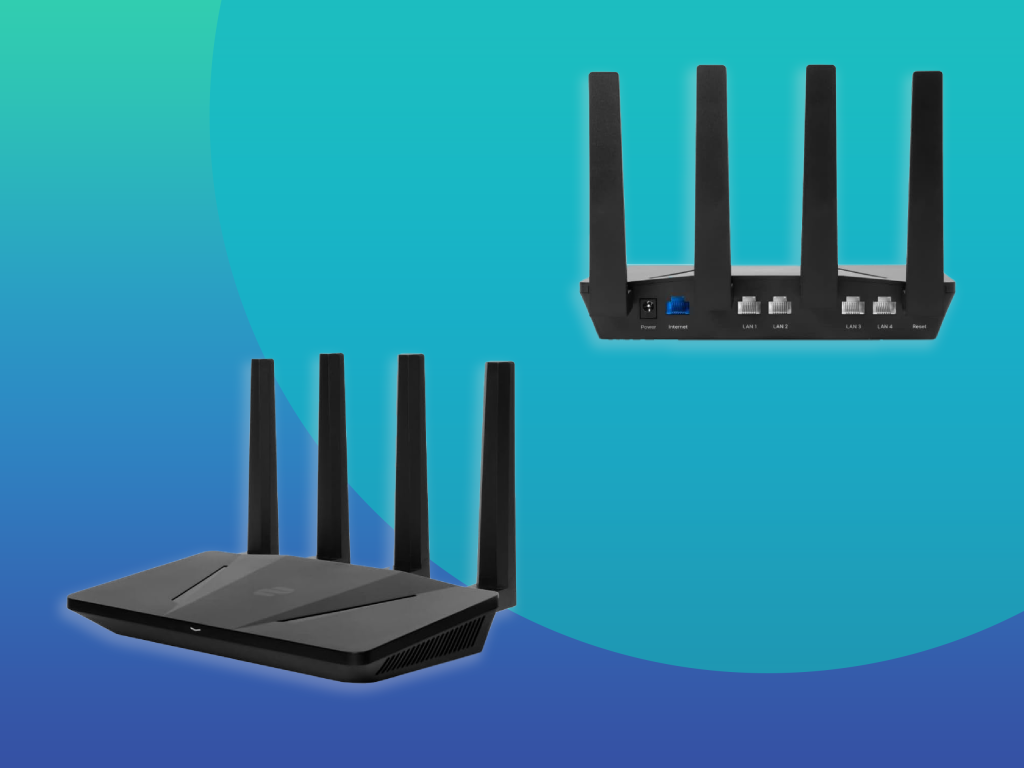Ways to make your internet faster: boost your online experience
Is your internet too slow? Let's fix it.

Don’t you hate it when your internet connection is super slow? It can be a drag, especially if you’re trying to stream your favourite movies, play games online, or browse the web.
Slow internet speeds can cause many delays and disruptions, and hinder productivity. But don’t worry; there are several ways to optimise your internet speed and make it faster! Let’s take a look at some effective methods to help you enhance your online experience and make the most of your internet connection.
Perform a speed test
Before diving into any optimisations, it’s essential to understand your current internet speed. Perform a speed test using online tools such as Ookla’s Speedtest or Fast.com. This will give you a baseline measurement of your internet connection, and help you gauge the effectiveness of any changes you make.
Place your router strategically

The placement of your Wi-Fi router plays a crucial role in the speed and coverage of your internet connection. Follow these tips to maximise your router’s performance:
Central Location: Place your wireless router in a central spot to ensure Wi-Fi signals are evenly spread out in your house or workplace. This central position will allow the router’s signals to radiate uniformly to all areas.
Elevated Position: To minimise obstructions and interference, place your router at an elevated position, such as a high shelf or wall mount.
Avoid Interference: Keep your router away from appliances, electronic devices, and thick walls that may interfere with the Wi-Fi signals.
Secure your network

Securing your Wi-Fi network not only protects your data but can also improve your internet speed. Here’s how to do it:
Change Default Password: You should alter the preset password on your router to a distinctive and secure one to stop unwanted access.
Enable Network Encryption: Enable WPA2 or WPA3 encryption on your router. This guarantees that only approved devices can link to your network, lowering the chance of splitting bandwidth with unfamiliar devices.
Update firmware and drivers
Keeping your router firmware and device drivers updated is crucial for optimal performance. Software upgrades frequently contain corrections for errors, strengthened vulnerability protections, and system operation speed upgrades. Check your router manufacturer’s website for the latest firmware updates, and regularly update the drivers on your devices.
Limit bandwidth-hungry applications
Certain applications and devices can consume a significant portion of your internet bandwidth, causing a slowdown for other devices. Consider implementing these practices:
Quality of Service (QoS): Enable QoS in your router settings to prioritize certain applications or devices over others. This guarantees essential applications, like video conferencing or online gaming, get enough bandwidth.
Background Updates: Configure your devices to perform updates during off-peak hours or manually update them when you’re not actively using the internet.
Use a Wi-Fi range extender or mesh network
There are two types of hardware devices you should also consider: Wi-Fi range extenders and mesh networks. Wi-Fi range extenders work by amplifying and rebroadcasting existing Wi-Fi signals, effectively extending the range of your wireless network. These devices are often easy to set up and can be a cost-effective solution for improving Wi-Fi coverage in specific areas of your home or office.
Mesh networks, on the other hand, use multiple nodes or access points to create a more seamless Wi-Fi network. With mesh networks, each node communicates with the others to ensure that your devices are always connected to the strongest signal. This can be particularly helpful in large buildings or outdoor spaces where traditional Wi-Fi routers may struggle to provide coverage.
Clear browser cache and cookies

Over time, your browser accumulates cache and cookies, which can slow down your internet speed. Clearing these files regularly maintains your browser’s performance:
Clear Cache: To remove the browsing history and temporary internet files stored by your web browser, locate the settings menu where you can delete cached data. Choose the relevant settings to erase the cache. This will remove the browsing information temporarily stored by the browser.
Delete Cookies: Delete unwanted cookies to free up storage and enhance browsing speed.
Consider a wired connection
When it comes to internet connectivity, a wired connection is often considered a better option than a wireless one. A wired connection provides faster and more stable network access than a Wi-Fi connection. By connecting your device directly to the router with an Ethernet cable, you can enjoy more dependable connectivity that is less prone to disturbance and interruption than a wireless setup.
In contrast, wireless network links are more prone to fluctuations in speed and stability. This is because they rely on radio waves to transmit data, which can be affected by a variety of factors such as distance, interference, and the number of devices connected to the network. As a result, the speed and stability of a wireless connection can vary greatly depending on these factors.
A physical Ethernet connection, on the other hand, offers the highest internet performance and dependability. This is because it provides a direct, dedicated link between your device and the router, allowing for faster data transfer and more consistent connectivity. So, if you want to achieve the best possible internet performance, a wired connection is definitely the way to go.
Upgrade your internet plan
If nothing else works and your internet connection keeps sluggish, you may want to get a faster internet package from your internet service provider. Contact your provider and discuss options with higher speeds, or consider switching to a different provider offering better service in your area.
A sluggish internet connection can be highly irritating. However, implementing the following recommendations can considerably boost your internet velocity and give you a more seamless online experience. Remember to regularly perform speed tests, optimize your router placement, secure your network, update firmware and drivers, and limit bandwidth-hungry applications. You can stream, browse, and work more efficiently with a faster internet connection.


